10 Top Women in CRE Share Career Advice, Paths to Success. Hint: Hard Work Obligatory
By Carl Gaines January 30, 2014 8:00 am
reprints
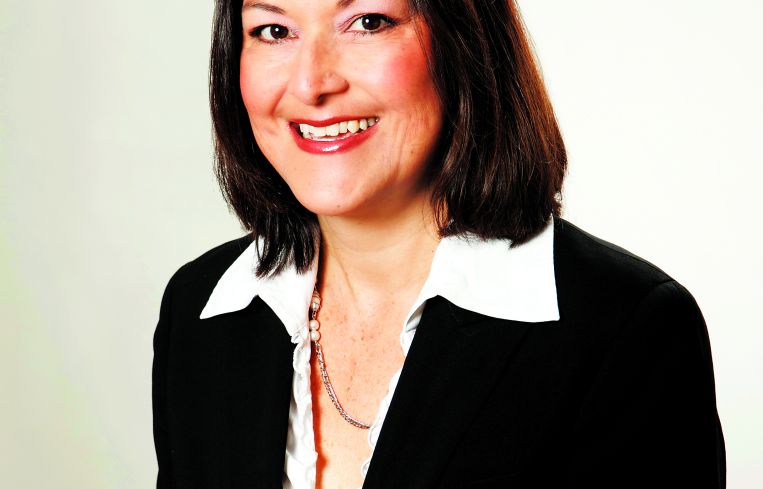

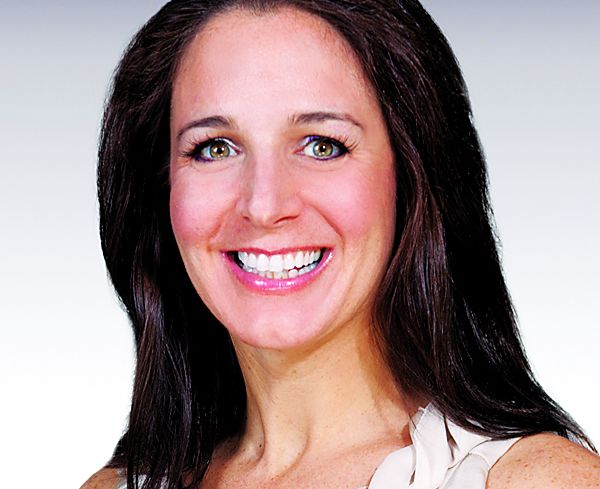
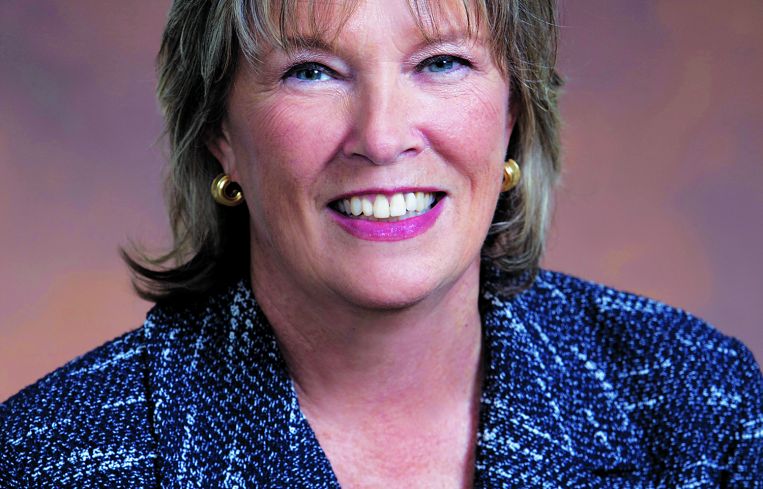
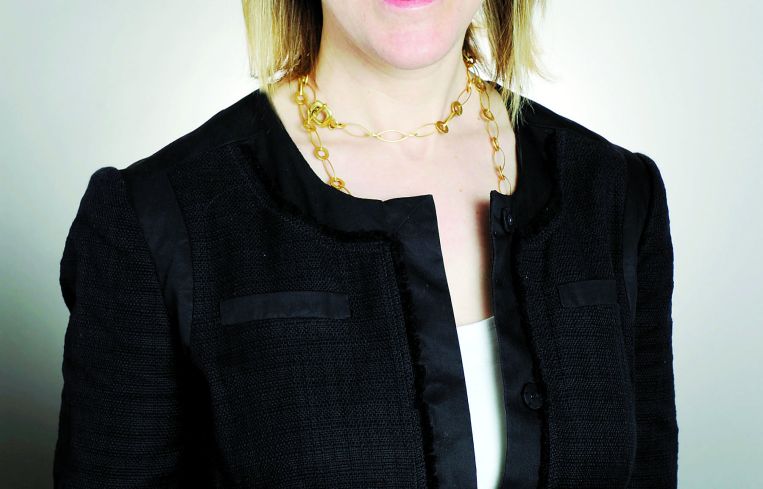
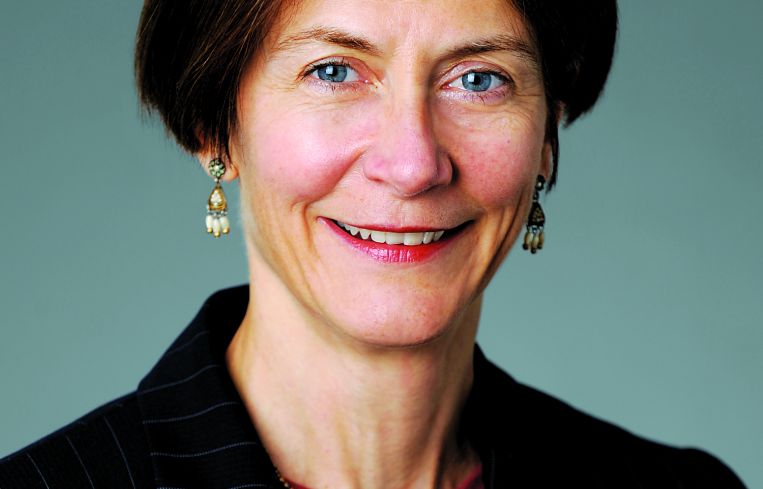


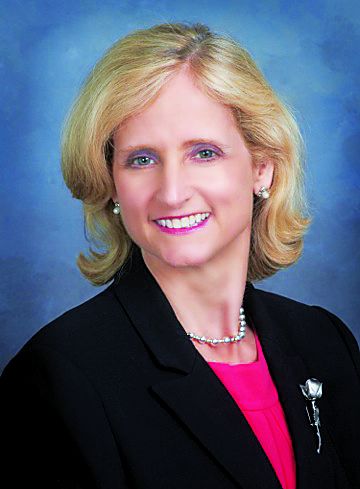

Go to any commercial real estate industry event, and the disproportionate numbers of men versus women in attendance are hard to overlook. That commercial real estate—and the finance end of the business, in particular—can be a lucrative career path begs questions about why women remain so outnumbered.
To get a little insight, Mortgage Observer sought out 10 industry heavy hitters who are at the top of their games to see if there were commonalities in what drew them to the industry and what helped them progress in their careers.
Right away, there were several themes among those we spoke to for 2014’s women’s issue. These included a prevailing sense of optimism, the flexibility to remain open to the unexpected, a love of the commercial real estate industry and, predictably, hard work. Lots and lots of hard work.
—Additional reporting by Damian Ghigliotty
Marcia Diaz oversees Prudential Mortgage Capital Company’s loan production across the United States as a managing director.
She is responsible for loan production and overseeing loan officers who are originating for various capital sources—but mostly Prudential’s general account. These loan officers, however, also originate CMBS loans for a joint venture with Liberty Island Group and Fannie Mae, Freddie Mac or FHA agency business.
“I also wear a credit hat for the western region,” she added. “And so I price the deals for the West Coast for the general account.” Though she had wanted to be a buyer in retail, and spent time working for one of the big department stores, she told Mortgage Observer that she fell in love with real estate in business school, at the University of California, Berkeley.
“I loved that it combined the quantitative side, analytical side,” she said, “which was something I thought was missing from being in retail.”
Ms. Diaz joined Prudential in 1990 and has worked in a variety of roles at PMCC, as well as at the Prudential Realty Group and Prudential Securities. She says her first real job was working at PMCC in Los Angeles right out of school.
Relationship development, which is important in the industry, is another draw for her.
Asked about her early days and if anyone in particular mentored her or helped to shepherd her career, she credited David Twardock, who retired early last year from his position as president of PMCC.
“There were a couple of instances in my career where he gave me some opportunities; one was working on a reorganization of the Prudential Realty Group, which was at the time the side that did the equity asset management,” she remembered. “At another point, he helped me find a job at Pru Securities in their realty group.” She also said that Mr. Twardock was instrumental in bringing her back to PMCC.
“When I graduated from college, I started working in commercial real estate debt,” explained Jenna Gerstenlauer, who founded Sound Mark Partners in September 2013 after leaving CBRE Capital Partners the previous month of her work in commercial real estate. “I’ve been in it my whole career.”
She worked at Natixis for eight years running the portfolio and asset management of the commercial real estate group. It was a small group, she said, which allowed her to work on all aspects of the business, including origination, underwriting, securitization and warehouse lending.
Of her career spent on the debt side of the business, Ms. Gerstenlauer credits it to her interest in math and finance. “I think I like real estate and real estate debt, because it’s hard assets, and obviously working on deals is very exciting,” she said. “I also like the capital markets side of the business, which is why I worked in securitization at the beginning of my career.
Though Sound Mark Partners is only several months old, Ms. Gerstenlauer said that the firm has already raised and deployed some cash. “We have closed on two larger deals,” she said. “And by about Feb. 5, we will have closed on two more deals.” She said that, in addition to putting money out, Sound Mark, which is four people strong at the moment, was “working on some other asset management opportunities also.”
Because the firm is a registered investment adviser with the SEC and an open-ended fund, she was unable to disclose how much money the fund has raised or any intended targeted amount. However, she did say that the firm has “plenty of capital to deploy” and was targeting the 60 to 95 percent LTV. “We will do any geographic location in the U.S., and we even have a small allocation outside of the U.S.,” she said. “Our target is also debt, but, again, we have a small allocation where we could do some equity.”
She said that, though she had primarily worked for men during her career and hadn’t had a typical mentor relationship, she has managed to over the years build a solid group of female colleagues.
“Here at Sound Mark, of the four of us, three of us are women,” she pointed out. “And when you look at the two people I’m hiring who are starting in April, one of them is a woman. So whether by choice or by accident, I love working with women.”
For Laurie Grasso, a partner in the real estate group at Hunton & Williams, networking and taking advantage of speaking engagements has been key.
“If you’re a woman coming up in the industry, there’s really nothing holding you back,” she said. “My advice to a young associate—be it a male or a female—would be that you have to work hard and learn your craft and you have to network.” She added that finding a mentor is essential as well.
When Mortgage Observer spoke to Ms. Grasso for last year’s inaugural women’s issue, she said that she was anticipating a busy year, which did, in fact, end up being the case.
In the beginning of 2013, Ms. Grasso, representing a joint venture of Eastbridge Sarl, Rose Associates and AG Insurance, closed the $300 million construction loan for 70 Pine Street. And toward the end of the year, she saw the closing of World-Wide Group’s $110 million construction financing for its 421-unit multifamily building at 41-42 24th Street in Long Island City.
“My year was kind of bookended by these big development projects,” she said. “And then within 2013, I represented Savanna Partners in the sale of 2 Rector Street and 5 Hanover Square, which were big office buildings downtown.”
Observer Media owner Jared Kushner bought 2 Rector Street with CIM Group.
“My practice is the big development deals, and then I do have a lot of fund clients and equity clients, and so it was a nice mix of both of those for 2013,” she said. “And I do think 2014 will be same type of mix for me.”
Rural Indiana—Camby, to be exact—was home for Sharon Kline, an executive vice president at CBRE Capital Markets who grew up in the small town located southwest of Indianapolis.
“My ending up in commercial real estate was really happenstance,” Ms. Kline told Mortgage Observer. After graduating college, she was working as a secretary at the National Bank of Detroit in the trust research department. She was moving to Columbus, and her boss’ boss, a member of the board of directors of Nationwide Life Insurance Co., facilitated a meeting with an executive there.
“I ended up in the mortgage department at Nationwide—I was the first woman officer,” she recalled. “I started out servicing residential loans, and I serviced commercial loans, and then I got into production and making new mortgages across the country.”
Ms. Kline pointed out that, though the recommendation got her foot in the door, she worked extremely hard thenceforth. After Nationwide, she spent a year in MetLife’s Houston office before leaving for United California Bank (later First Interstate Mortgage Company) for nine years. Another eight years were spent at Northland Financial Company—now NorthMarq Capital.
“I’ve been here at CBRE—I just finished up my seventeenth year,” she said.
I think my story is maybe a little different than a lot of women in the industry,” she said, “in that I started young in the business, I was one of the few female mortgage banking executives and even life company people and I have to say that I had great male mentors my whole entire career.”
Still, she said that building a network of female colleagues—through groups such as CREW—has been an important factor.
Based in the company’s Newport Beach, Calif., office, Ms. Kline is responsible for generating mortgage loans, she said. Over the past 10 years, she has been involved in more than $5 billion in business.
“We actually have a very strong pipeline going in to 2014,” she said, noting that this includes loans from California to Maine. “We’ve already closed one loan, and we have a couple more closing in February.” 2013’s total hit $1.8 billion, and she added that she expects her 2014 total volume of business to surpass, or come close to, that figure.
Asked if given her small town roots she ever finds herself shocked by the number of deals and large dollar volume of business she transacts, she paused and then said, “Certainly. Who would have guessed?”
As an undergraduate studying bioengineering and finance at the University of Pennsylvania in the early 1990s, Heidi Learner had a Wall Street job on her radar but no thoughts of commercial real estate.
“It’s funny how what you think you’re going to do in life often ends up being something completely different,” the chief economist at New York-based commercial real estate brokerage firm Studley said. “My first job out of school was at Salomon Brothers. Certainly, the math has helped over the years, but I don’t think there’s been one time that I’ve used anything specific to my bioengineering studies.”
After leaving a vice president role at State Street Corporation, Ms. Learner joined Studley in May 2012, where she uses real-time evaluations of supply and demand for office space to help clients understand the economics of major commercial real estate markets. The information she analyzes on a daily basis runs the gamut from CMBS data to labor market statistics to annual financial reports issued by cities and states. Her research supports the brokerage firm’s 25 domestic offices, as well as the company’s more than 60 global offices.
“I had spent almost 20 years on Wall Street in a variety of capacities, so this was a relatively new career switch for me,” she said. Among her previous roles, Ms. Learner has worked as an analyst focused on foreign exchange rate and interest rate hedging and a vice president focused on emerging markets. During her early years in New York’s financial industry, she received her master’s degree in mathematical finance from Columbia University.
Ms. Learner noted that the obstacles she has faced in her career have never been the result of gender differences. “Certainly, I’ve had my fair share of challenges, but as far as challenges specifically because the industry tends to be male-dominated, no,” she said. “Of course, it’s important to recognize that women have different communication styles and that you need to know how to play in the sandbox with people who have both styles.”
The Weston, Mass., native said her goal looking ahead is to make sure her coverage area grows as Studley continues to expand geographically and potentially into new lines of business.
A land use attorney in Fried Frank’s Real Estate Group, which she joined as a partner in 2003, Melanie Meyers works on entitlements for developments, as well as on the planning side of development.
Her roster of clients includes such boldface names as the Rudin family, Forest City Ratner and Related Companies—for St. Vincent’s, the Atlantic Yards and Hudson Yards, respectively.
A former architect, she said that her move to the legal profession had been a logical one, since her interest was increasingly drawn to how design works within the infrastructure of a city.
“The architecture firm I worked at was also a planning firm,” she told Mortgage Observer. “So I was sort of already in that world. I was going between the design of buildings and the organization of buildings in a larger framework.”
Ms. Meyers said that she is still spending a significant amount of time on the implementation of Atlantic Yards, which was planned to unfurl in several phases. In addition, she has also represented Cornell University for its land use approvals for the applied sciences campus—Cornell NYC Tech—on Roosevelt Island, and she just finished the land use process on behalf of Park Tower Group for its residential project along the Greenpoint-Williamsburg Waterfront.
“There are many more women who have a role on the developer side,” she pointed out, naming Maryanne Gilmartin, Melissa Pianko, Helena Durst and Samantha Rudin. “There are actually a lot of females in the real estate world. From a lawyer’s standpoint, you need to know yourself, you certainly need to know your business, and you need to know your clients. My advice is that you need to work from your strengths.”
When asked if she preferred larger scale, more headline-grabbing assignments, Ms. Meyers said that every project was unique. “And developers—they’re entrepreneurial, they’re optimists. They want to see things get done,” she continued. “When you solve a small problem or get a question answered on a project which is 70,000 square feet as opposed to 70 million square feet, there’s a lot of satisfaction in that.”
Nicoletta Pagnotta manages a significant pipeline of deals for Meridian Capital Group in the specialized world of underlying condo and co-op finance. The firm, in fact, credits her with being instrumental in the $1.6 billion of this type of business it transacted in 2013. And no wonder: She worked on about $800 million of that.
“What’s unique about Meridian is that we have these proprietary products. We’re constantly in the market working with our lenders to improve what they’re able to offer,” she told Mortgage Observer. She explained that Meridian is able to carve out products with the lenders it works with to best suit the needs of the borrowers in this niche. “Every condo and co-op board member, sponsor, managing agent—they should really know that Meridian is the best partner out there in this market to address those needs.”
Ms. Pagnotta, who has been at Meridian for roughly 10 years now and focuses on underwriting, origination and placement, has been known to go the extra mile for her clients—literally.
“When Superstorm Sandy hit, we were working with a new lender. It was an important first deal for the company,” she explained. “And it was a deal that was rate-locked, had a maturity date—every deadline you could imagine.” With the city shut down and transportation options limited, the loan still had to fund. Ms. Pagnotta hoofed it to the assigning bank to pick up the papers and walked over the Brooklyn Bridge into Manhattan to hand deliver them to the title company. Everything closed on time, and all the deadlines were met.
Women’s organizations—and events—have been important for Ms. Pagnotta as well. For example, she cited AREW, the Association of Real Estate Women. She counsels younger women coming up behind her “to always ask questions,” relying on more senior colleagues.
As for her interest in real estate, she said that it started at home.
“My parents came from Italy,” she pointed out. “And they came for the American Dream. So I got to see them become homeowners and become, themselves, landlords and realized from a young age how much real estate affects every person, whether they rent or they own.”
Janice Stanton, who started out in the bond and stock industry working for MetLife in the mid to late 1980s, has spent much of her career pushing for increased transparency in real estate. She discovered her love for the business after getting a clearer look at how it operates.
“I got into real estate as a spy,” the senior managing director in Cushman & Wakefield’s capital markets group said jokingly. “I had a bond and stock portfolio for a big investment manager, and every once in a while, they’d slide in some real estate to get better documentation.” She said that, after going in to real estate, she “loved it and never went back.”
In her current role, Ms. Stanton advises global investors on the capital markets and private real estate markets. Those clients include institutional investors—domestic and foreign—and hedge funds. While her job requires a certain level of secrecy, she has remained a proponent of openly sharing information for the better of the real estate industry.
“Bonds and stocks are very efficient, and there’s very little arbitrage in the market,” she said. “Real estate back when I got started, and still to some extent now, is one of the markets that isn’t super efficient. You can make a lot of money and do really well with better information, better insights and better due diligence.”
In between her roles at MetLife and C&W, Ms. Stanton and a group of four colleagues started their own minority- and women-owned business in 1995, a real estate investment manager called Equinox Investments. C&W was a seed capital partner in that business and brought Ms. Stanton on board in 1998. The New York native, who received her bachelor’s degree in art history and economics from Wellesley College, said as a woman in real estate there is more focus on what you do.
“It’s pretty clear that you can look across the room at a commercial real estate event and not see a proportionate share of women,” Ms. Stanton, a recipient of the YWCA’s Academy of Women Achievers Award, said. “In the end, you can make that a negative or a positive. As a woman in real estate, you are more memorable, because there are fewer of you.”
Laura Walker is a senior vice president at Citibank, as well as the current president of the 100-member New York chapter of the CREW network — a nearly 9,000-strong group “dedicated to advancing the achievements of women in commercial real estate.”
Ms. Walker works in the specialty sales and products group within Citi’s commercial bank. A 20-year veteran of the bank, she joined as a financial analyst.
“Several people,” she said when asked if there was anyone who mentored her during the course of her career. “I’ve benefitted so much from having mentors, both within Citi and externally as well, male and female. It’s who we work with and who is within our circle who we can learn from everyday.”
Her responsibilities include managing commercial clients within the bank, including property managers, owners, developers, title companies and insurance companies. She said she helps these businesses manage their operating cash.
Though she declined to provide specifics, recent deals she has coordinated are “$100 million or more” for commercial properties located in New York City, as well as the deposits related to those transactions.
Last year, she was president-elect of NYCREW, and she is also currently involved in two other committees on the national level of the CREW network.
Asked about why she thinks NYCREW is important, she characterized the group as “a door opener for many, many things,” including other professionals to learn from, do business with and mentor.
“It’s always a terrific tool, and I leverage that with my colleagues and my clients, because I manage the largest commercial clients that Citibank has,” she said. “It’s another way to learn and get access to people. And our programs are value-added. We had a 63 percent increase in membership in 2013 because of the value out there. Time is money for everybody.”
Ms. Walker said, as for challenges faced as a woman in a male-dominated industry, “You just continue to work and get better all the time and learn from everybody. It’s CaN-I: Constant and Never-ending Improvement. I want to get better all the time at what I do.”
Meggan Walsh, managing director and deputy group head at CIT Real Estate Finance, got her start in real estate just a few years out of college in January 1984. Her first gig was working as an apraiser for a subsidiary of Bank of America, where she acquired “the broadest set of skills,” including market research and discounted cash-flow skills.
“The other big part of it was living in Manhattan,” she said looking back. “I’m married to an architect, so we used to spend our early days walking around on the weekends and taking it all in.”
Ms. Walsh and several colleagues joined CIT’s newly established real estate group from Bank of Ireland in October 2011. The New York-based financial company acquired her team after losing out to Wells Fargo on a Bank of Ireland portfolio.
Ms. Walsh’s areas of expertise working under CIT Real Estate Finance’s president, Matt Galligan, include commerical loans, construction loans, bridge loans and acquisition loans. The Ithaca College graduate oversees a loan origination, underwriting and portfolio management team that provides financing for construction loans on commercial projects and investment loans secured by cash-flow-generating real estate.
Ms. Walsh noted that the greatest challenge she has faced as a woman building her career in a largely male-dominated industry has been one of “sheer numbers.”
“I remember walking into meetings when I first started out, and there would be a meeting of 100 people, where four of them were women,” Ms. Walsh, a longstanding member of the invitation-only assosocation Women Executives in Real Estate, said. “The real challenge when you’re starting any career is understanding how the whole thing operates.
“One of the things I’ve learned in retrospect is that you go out and you get the opportunity; you don’t wait until your skill set is completely refined and you feel ready,” she added. “At least in my particular generation, I don’t think that’s something that came naturally to women.”



